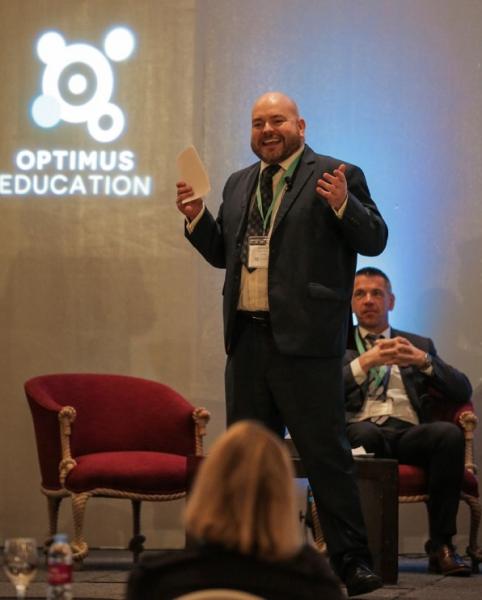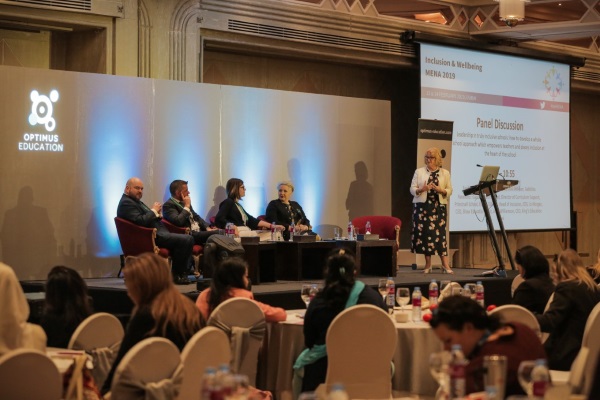Inclusion and wellbeing in Dubai: Gareth D Morewood reflects on Optimus' first international conference.

I am very fortunate to work with a number professionals, families and young people in the UK but also, more recently, abroad. You can read about one of my previous visits to Chile in this blog about developing inclusive practices from an international perspective.
I have recently returned from speaking at Optimus’ debut event in Dubai, which was a fascinating first step in supporting new legislation around inclusion.
'People of determination' is how the UAE has chosen to view the attributes of disabled people, as reflection of their strength of character, their perseverance and their courage. This use of language is very interesting and something I continue to consider post-visit.
The inspiration for the development of the Dubai Inclusive Education Policy Framework can be clearly seen in a statetment by His Highness Sheikh Mohammed bin Rashid Al Maktoum:
‘Determination, strategy and vision for the future are our real resources in the quest for excellence and success.’
In essence, the landscape in Dubai is changing. Schools are to be inclusive, as set out within their policy documentation.
‘The concept of inclusive education lies at the heart of effective education. It encompasses the principles of diversity, personalisation, equity, respect, acceptance and enrichment. When we improve the quality of inclusion within our schools, we improve education for all.’
Dubai Inclusion Framework 2017(KHDA)
This inaugural inclusion and wellbeing event was held over two days, and had a really positive vibe. Delegates were really engaged with the content and alongside the main event, free workshops for other school staff allowed for a wider impact.
Day one focussed on how to provide a fully inclusive culture in school.
Day two focussed on supporting wellbeing and mental health.

My first input was as part of a panel debate about the leadership of inclusive schools. I have written about this recently in Great Expectations, David Bartram’s excellent book.
My thoughts on ‘corporate responsibility’ as part of a whole school approach may not be how everyone views ‘leadership’ per se, however being inclusive shouldn’t be just about the young people. Surely it should be about the staff and families too?
During the debate I suggested that ‘holding people to account’ may be the wrong language for truly inclusive systems.
Three years ago I compiled a post with many contributors talking about inclusion and what it meant to them. This is why, in my view, any such philosophy needs to be rooted in policy (as the UAE have clearly set out).
Although this is the start of a journey, after spending a few days in Dubai, I saw that there was a real desire and skill to ensure positive steps are made towards implementation. This is most definitely a ‘watch this space’ as things continue to move forward.
My main focus at the event was delivering an hour long workshop from the new one-day course I have developed in partnership with Studio III.
The workshop drew on the 'saturation model' (Morewood et al, 2011) developed by myself and colleagues as part of a whole-school approach to supporting autistic students in mainstream schools, combined with emotional regulation and low arousal approaches developed by Studio III (McDonnell & Deveau, 2018).
The workshop considered the challenges young people face in educational settings and in their community, and provided clear strategies that are proven to have a significant impact upon learning, engagement and the reduction of concerning behaviours. It focussed on:
This was very well received as part of the wider conference, but specifically with regard to the new policy regarding inclusion.
Being inclusive should not just be about the child, but about the staff and family too
During the event I was able to record a short interview with Dr Pooky Knightsmith summarising the approach.
This was very much the starting point for new ways of working in Dubai and the UAE, and this inclusive journey will be one I follow with great interest. I hope that further posts from colleagues working within the educational system can share their experiences and learning.
Further reading
More from Optimus
References